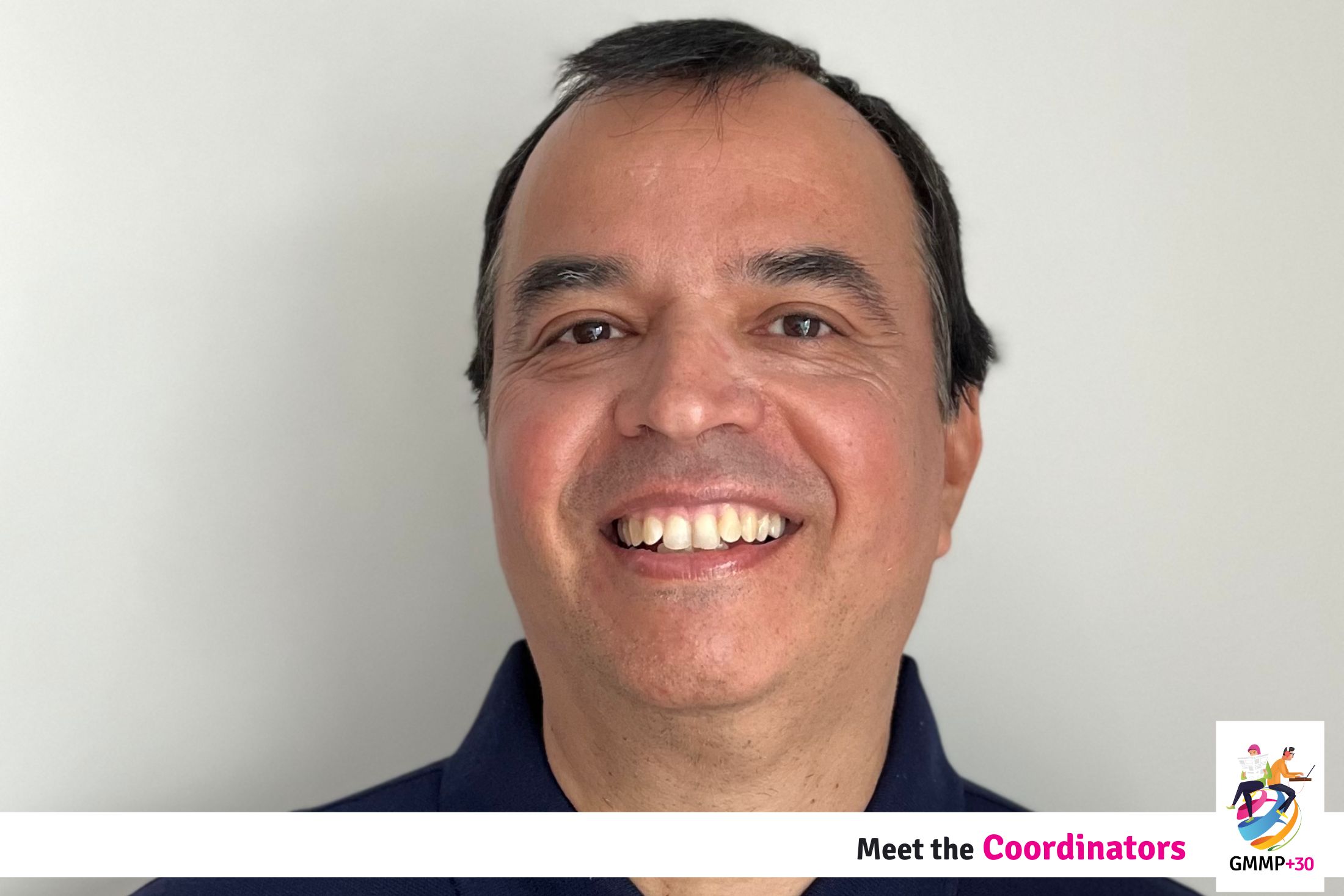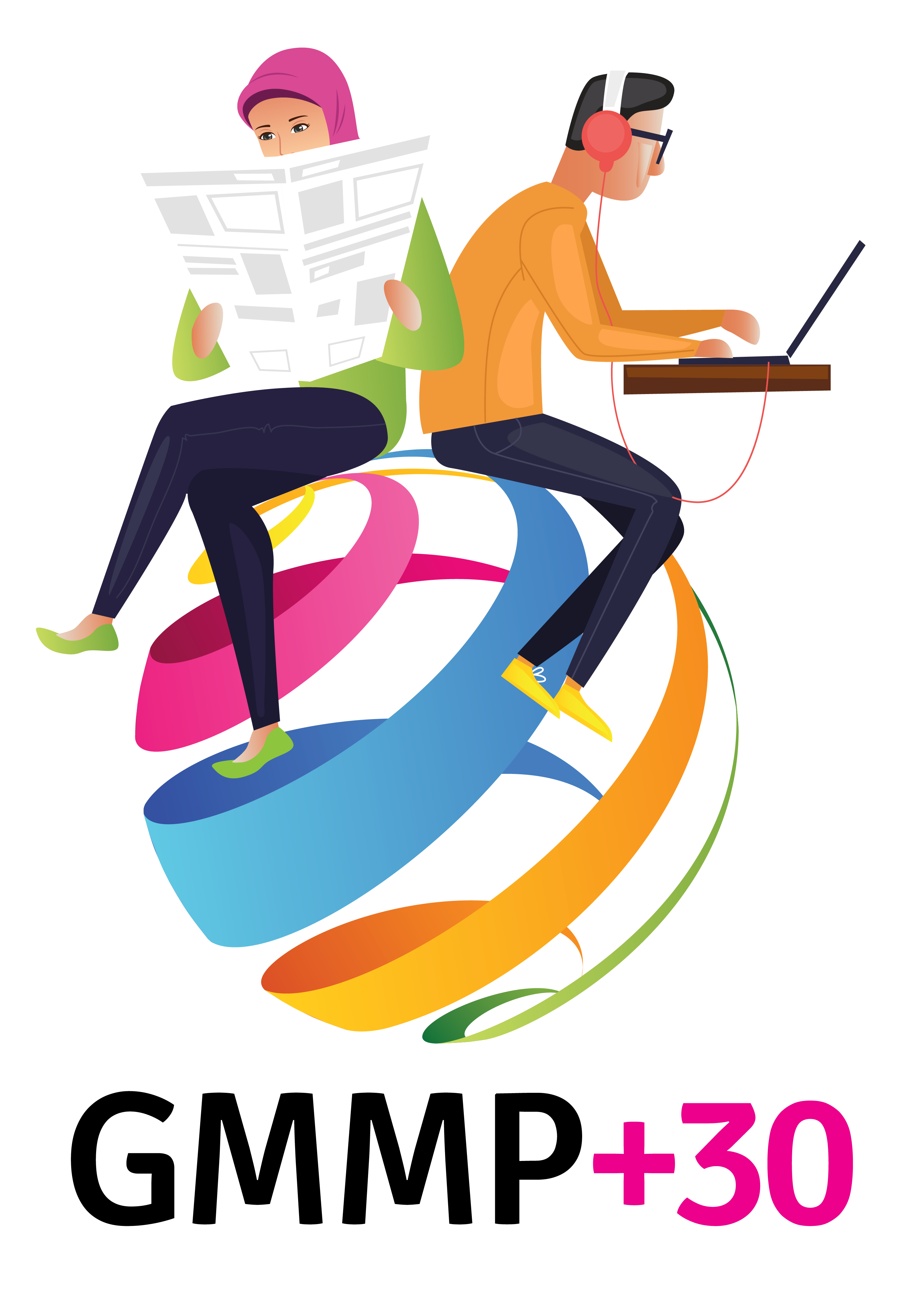
16 Feb Meet GMMP Project Coordinator Rod Molina
Name: Rodrigo or Rod Molina (he/him)
Coordinator role: GMMP Project Coordinator
Since: 2025
What is your background in working for gender justice, how have you been involved in advancing gender equality?
For biographical reasons, human rights were a sensitive topic for me. At the time, in the 90s and 00s in Chile, political reforms were taking place in the state, and a gender perspective was being incorporated at different levels.
I began engaging with gender and masculinities issues in a formal way in Montreal (Quebec), Canada, while doing graduate studies. Afterwards, I was offered employment in Santiago, Chile, with a group of researchers who did consultation on social policy from a gender perspective.
In this work, I had the opportunity to talk to a significant number of young people who had children as teenagers, giving me a close look at this experience from both the young women’s and young men’s perspectives. I became connected to these issues and the love these young people felt for their newborn children. I was moved by their attempts to do right by their children.
After that I got involved in issues regarding how young men relate to masculine norms, particularly in school settings. And that moved me closer to doing more intervention-like work, even though I was more of a researcher at the time.
Later, I moved back to Canada where I helped develop educational material to engage men and boys to raise awareness regarding sexual and gender-based violence. I did workshops for men and women from all walks of life to address these issues.
What motivated you to apply for the position as GMMP project coordinator?
I have been engaging in gender justice and gender equality work for the last fifteen years. My priority was to continue to do this type of work, to contribute the set of skills I have developed and that I know are needed.
What about the GMMP do you believe is unique and crucial?
A global monitoring project drawing attention issues related to gender and media, that has been able to go on for 30 years, is amazing and noteworthy.
Additionally, if you consider that this project is carried out in over a hundred countries, from all regions of the globe, that it is sustained by groups from civil society out of their love, commitment, and perseverance for a more equal and less violent society – each of these points I find extraordinary and an inspiration.
Furthermore, to have evidence on these issues from the last three decades is an incredible resource that helps to engage with different groups in public and private discourse with evidence-based arguments. It is difficult to understate the importance of this. To be able to place evidence as key part of public dialogues is crucial.
Where do you see areas for growth?
I think it is possible to expand the conversations about how the media is engaging with questions of equal and non-stereotypical representations of women, men, and different peoples in the media.
Promoting critical media literacy, particularly among young people, is more important than ever. What do media organizations, governments, the business sector have to say about the results and tendencies the GMMP has found? What can they and we do to improve on these results? I think these are all questions that are vitally important.
This year marks the 30th anniversary of both the GMMP and the Beijing Platform for Action. Unfortunately, progress towards equal representation and gender-just portrayal of women in mainstream news media remains painfully slow, and there is a worldwide rise of right-wing politics and backlash against efforts towards gender equality. What contributions would you want the GMMP to make in the next five years to sustainably counter these trends?
Placing empirical evidence at the centre of public and private conversations is necessary and of vital importance. It makes total sense to engage all people, who have varying opinions on gender equality, with evidence on these issues. The GMMP is a crucial source of evidence on the fundamental topic that is media representations, as it touches everybody directly or indirectly.
It is a good idea that whenever possible GMMP results be used to
- engage with people from different walks of life,
- provide clear examples of non-stereotypical and stereotypical media representations,
- show the advancements that have been made in this area,
- outline where progress can be made in the short and medium term,
- explain why this is important, and
- show how these changes might impact other spheres of life in a positive way.
Turns towards intolerant political ideologies are an opportunity for all people who are in favour of all forms of equality to come together and support each other.
The GMMP, in its seventh iteration, is a project to produce an important resource for those who see equality as progress. These results, when compared with previous versions, will gain in strength and, when placed in a national, regional, and global scale, will provide a powerful argument to anyone willing to listen and reflect.
What steps do you envision to maintain the vitality of the global GMMP network and to build the capacity of civil society groups to carry out monitoring and engage in evidence-driven advocacy for social transformation?
I hope to
- work my way into the role and get to know the network;
- connect with the teams and the regional and national coordinators;
- get an understanding of the national teams that do the monitoring;
- understand the circumstances in which they develop the GMMP project in all its stages; and
- gather insight on how they interpret the results of the GMMP, its tendencies, and what they do or plan to do with the results.
I think it is also important to recognise and value what 30 years of continuity means currently. There is a tremendous accomplishment in this, particularly when you consider that this project is mostly sustained by global civil society spread out in over a hundred countries from all regions of the world.
This network, this team, has know-how that is very important. Many of its individual members carry the complete or partial history of the GMMP process: the goals, the barriers, the initiatives, the learning, the achievements, the network building process, and so forth.
These experiences are extremely valuable to the network and new and future members, and they are useful to future iterations of the project. Sustainability of this project is of vital importance, finding ways to strengthen this aspect of the project.
Of course, we will be preparing resources and carrying out activities for the monitoring day, to assure that when that day comes, we will all be ready to work successfully.
What would you like to communicate to the GMMP network as you take up your position as project coordinator?
I am very grateful to be given this opportunity to coordinate this wonderful and impactful project. I am honoured to be part of this talented team and network, and to be able to contribute to the continuity of the GMMP.
I am ready to add my skills to this group of committed people. I am here to support the global network in what I can so that the 7th GMMP is successful, that we – each national team and region – can advance in our goals and hopefully start to pave the way for another iteration of this important project.
Rod Molina has lived, studied, and worked in Chile as well as in Canada where he currently resides. His background is in the social sciences. He has worked primarily in research-related activities; however, he aspires to apply research findings in work on the ground with people and communities.

Get involved with a GMMP+30 team near you. Contact us to find out how.

Sorry, the comment form is closed at this time.